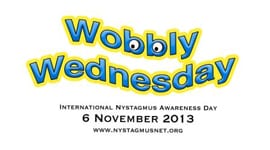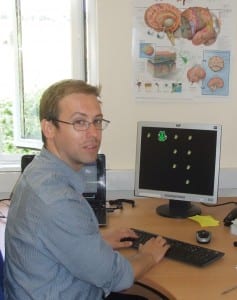Nystagmus is the word we use to describe an involuntary oscillation of the eyes. While it can be a normal physiological response to visual and vestibular sensations, there are unfortunate pathological variations which cause visual impairment. It is a relatively common condition affecting one in every two to three thousand people in the UK, and researchers are very interested in trying to determine the causes of pathological nystagmus and to understand how it might be effectively treated.
Nystagmus network is a charity dedicated to improving patient information, support and scientific research into nystagmus. I was recently at their 3rd international nystagmus research workshop to present some research findings from an investigation into physiological nystagmus. The workshop was particularly interesting because of the scope of different scientific disciplines represented. The programme started on the first day with presentations on mathematical and animal models of nystagmus. On the second day we discussed the results of retinal imaging studies, the genetics of nystagmus, and the impact of living with nystagmus on the quality of life of patients. Presentations on the final day were focused on tentative suggestions for both surgical and medical treatments.
 Nystagmus Network are currently raising awareness of nystagmus in the run-up to their first International Nystagmus Awareness Day on November 6th. The awareness day has been labelled “Wobbly Wednesday” as nystagmus is often referred to as “wobbly eyes”. If you have been affected by nystagmus or know anyone who has you might wish to organise an event for the day, and you can register for a supporters pack by emailing info@nystagmusnet.org. Alternatively there is a Facebook group where supporters can interact with each other.
Nystagmus Network are currently raising awareness of nystagmus in the run-up to their first International Nystagmus Awareness Day on November 6th. The awareness day has been labelled “Wobbly Wednesday” as nystagmus is often referred to as “wobbly eyes”. If you have been affected by nystagmus or know anyone who has you might wish to organise an event for the day, and you can register for a supporters pack by emailing info@nystagmusnet.org. Alternatively there is a Facebook group where supporters can interact with each other.
“Remember, remember, the 6th of November”.
